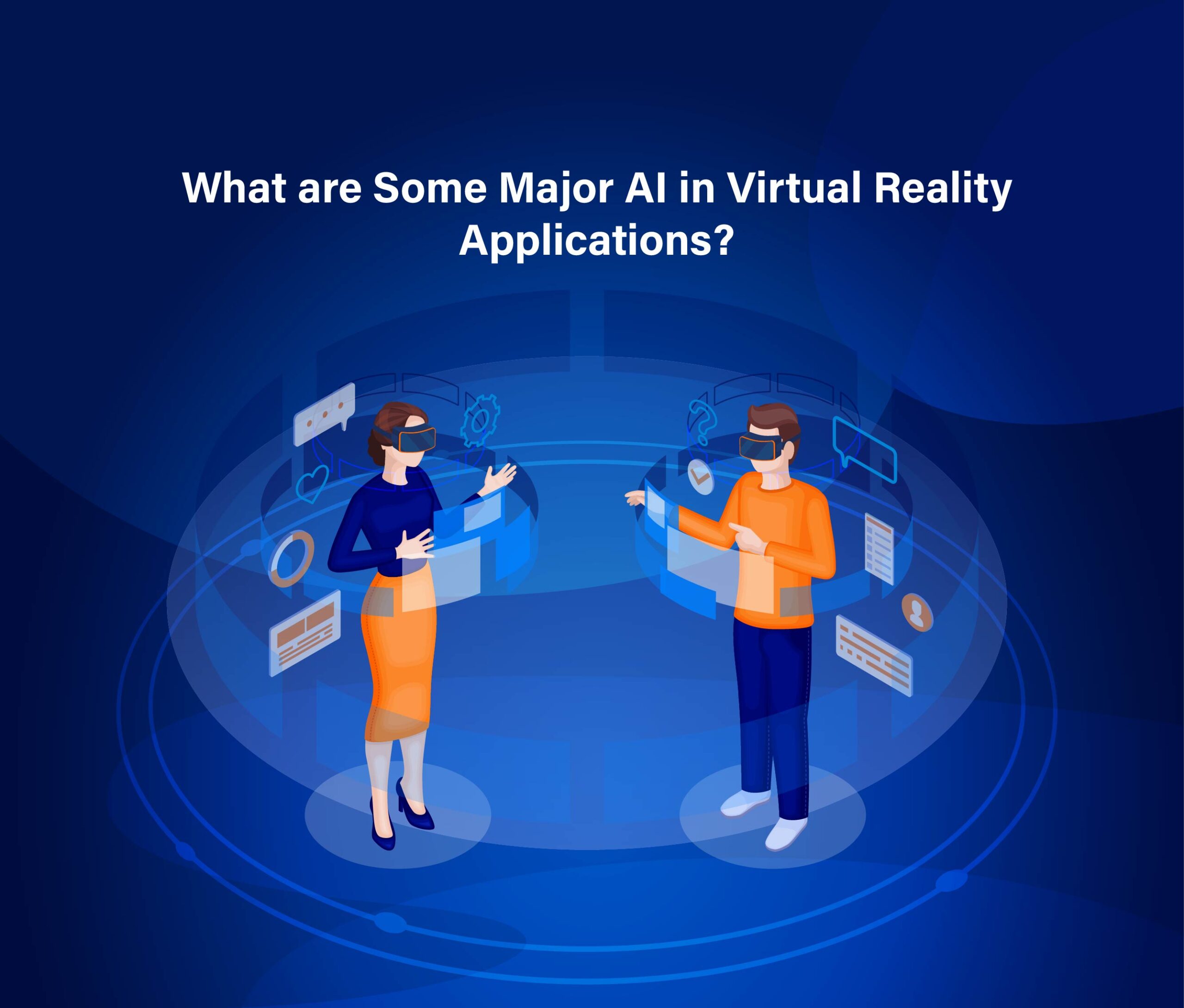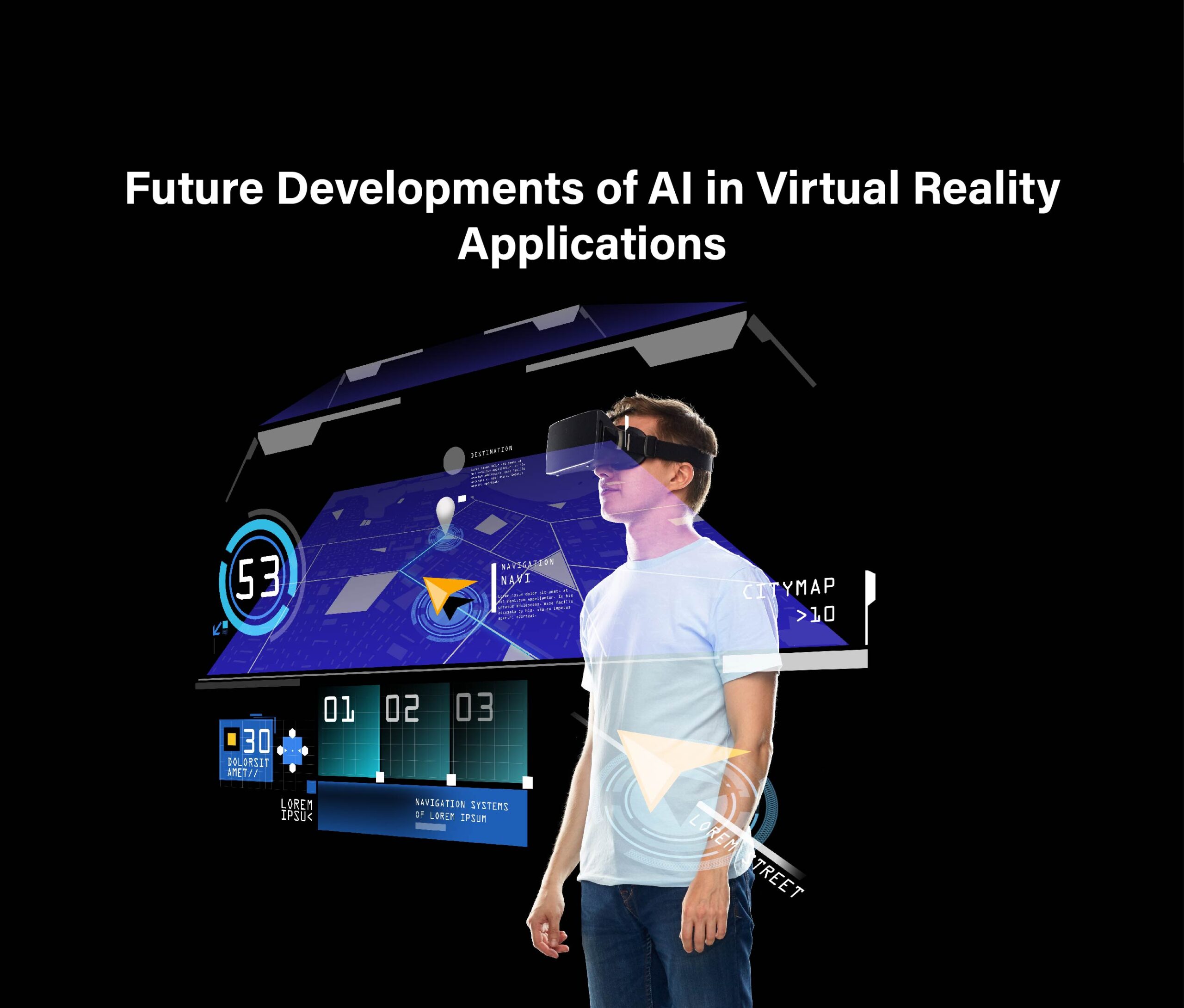Ever wondered how the realms of artificial intelligence and virtual reality converge to redefine our digital experiences? The answer lies in the dynamic synergy of AI in virtual reality applications, an exhilarating frontier where innovation knows no bounds.
From enhancing simulations to revolutionizing user interactions, the marriage of AI and VR is opening doors to unprecedented possibilities. So, let’s dive into the realm where artificial intelligence meets the virtual frontier and explore the mind-bending convergence of AI and virtual reality!
What is AI in Virtual Reality?
The concept of “AI in virtual reality” encompasses the merging of artificial intelligence (AI) technologies with virtual reality (VR) environments, thereby augmenting and optimizing the VR experience. This integration paves the way for the development of virtual environments that are more engrossing, interactive, and intelligent, capable of adjusting and reacting to user input and behavior.
AI in VR encompasses the utilization of AI algorithms and methods to examine user interactions, customize experiences, and construct virtual environments that are dynamic and responsive. Through the incorporation of AI, VR encounters can attain higher levels of intelligence, adaptability, and user engagement.
What are Some Major AI in Virtual Reality Applications?
 AI plays a significant role in improving virtual reality experiences across different sectors, offering diverse applications. Below are some prevalent AI in virtual reality applications.
AI plays a significant role in improving virtual reality experiences across different sectors, offering diverse applications. Below are some prevalent AI in virtual reality applications.
Creating Immersive Environments: AI is utilized to create lifelike and engaging virtual environments commonly seen in the realms of gaming and training simulations. These environments aim to offer users an immersive experience that feels both realistic and interactive.
Enhancing Retail Experience: AI technology is utilized to enhance and personalize the virtual retail experience. This involves providing recommendations for complementary products and enhancing the overall shopping journey.
Employee Training: AI and VR technologies are used in employee training to provide lifelike simulations and interactive learning opportunities, thereby increasing engagement and boosting knowledge retention.
Gaming: AI algorithms are employed in the generation of game elements such as levels, characters, and game mechanics. The purpose is to enhance the immersive nature of virtual reality gaming by producing more interactive and captivating experiences.
Healthcare: AI integrated into virtual reality (VR) has the potential to revolutionize precision medicine therapeutics and treatments for neurological diseases. This emerging technology provides novel tools for medical research and enhances patient care.
Safety and Hazard Warnings: AI-driven virtual reality (VR) encounters can offer cautionary alerts and precautionary measures by utilizing AI’s proficiency in examining and addressing potential risks within virtual settings.
Revolutionizing Gaming Experiences with AI in Virtual Reality Applications
Intelligent NPCs and Dynamic Environments
The integration of artificial intelligence (AI) into virtual reality (VR) has pushed the boundaries of the gaming industry, allowing virtual worlds to reach unparalleled levels of realism. At the forefront of this advancement are Intelligent Non-Playable Characters (NPCs) that go beyond the conventional adversaries found in traditional games. Powered by advanced AI algorithms, these NPCs possess the remarkable capability to adjust, acquire new knowledge, and react dynamically to the actions of players. As a result, players not only face intense challenges but also experience an unpredictable and dynamic atmosphere in virtual environments. With the advancement of artificial intelligence (AI), the line between computer-controlled characters and human players in video games becomes increasingly blurred, resulting in a gaming experience that is more engaging and captivating.
Personalized Gaming Adventures
The seamless integration of AI in virtual reality applications within the gaming industry goes beyond creating visually stunning landscapes; it’s about tailoring the entire gaming experience to the individual player. AI algorithms delve into the intricacies of player behavior, preferences, and skill levels, creating a nuanced understanding of each gamer’s unique style. Leveraging this wealth of data, virtual worlds evolve organically based on individual interactions, ensuring that no two players embark on the same journey. This personalized approach, driven by the capabilities of AI in virtual reality applications, transcends traditional gaming narratives, setting the stage for a future where adaptive storytelling becomes a cornerstone of gaming experiences.
Imagine a game that responds to your choices, learns from your strategies, and crafts a narrative that is uniquely yours—a personalized adventure that goes beyond scripted storytelling, marking a paradigm shift in how we engage with virtual realms. This evolution not only enhances player engagement but also foreshadows a transformative era in which games become living, breathing entities that evolve in tandem with the players who inhabit them.
Future Developments of AI in Virtual Reality Applications
 In recent times, there has been a growing interest in the concept of the “metaverse” and some relate it to science fiction films such as “Ready, Player One” where individuals can utilize immersive technology to access a vast virtual world brimming with unique and exciting encounters. Despite the advancements in VR technology, AR technology, and immersive technologies overall, we are still far from realizing the metaverse as a tangible reality. However, it is undeniable that digital transformation is progressing rapidly, AI applications are expanding, and the field of immersive technology as a whole is evolving swiftly.
In recent times, there has been a growing interest in the concept of the “metaverse” and some relate it to science fiction films such as “Ready, Player One” where individuals can utilize immersive technology to access a vast virtual world brimming with unique and exciting encounters. Despite the advancements in VR technology, AR technology, and immersive technologies overall, we are still far from realizing the metaverse as a tangible reality. However, it is undeniable that digital transformation is progressing rapidly, AI applications are expanding, and the field of immersive technology as a whole is evolving swiftly.
Numerous companies such as Google, Meta (formerly known as Facebook), Microsoft, Nvidia, and various startups are actively pushing the boundaries of innovation in artificial intelligence (AI), machine learning (ML), augmented reality (AR), mixed reality (MR), virtual reality (VR), and other related technologies.
Final Words
The symbiotic relationship between artificial intelligence and virtual reality has ushered in a transformative era, propelling us into the uncharted territories of immersive digital experiences. The fusion of AI in virtual reality applications has not only elevated the quality of simulations but has also paved the way for unparalleled innovation across various industries.
From enhanced gaming experiences to revolutionary advancements in education, healthcare, and beyond, the collaboration of AI and virtual reality applications is an unfolding narrative of endless possibilities. As we navigate this landscape of innovation, one thing is certain: the synergy of AI and virtual reality is not just a glimpse into the future—it is the future, and its potential continues to captivate and reshape the way we perceive and interact with our increasingly digitized world.


